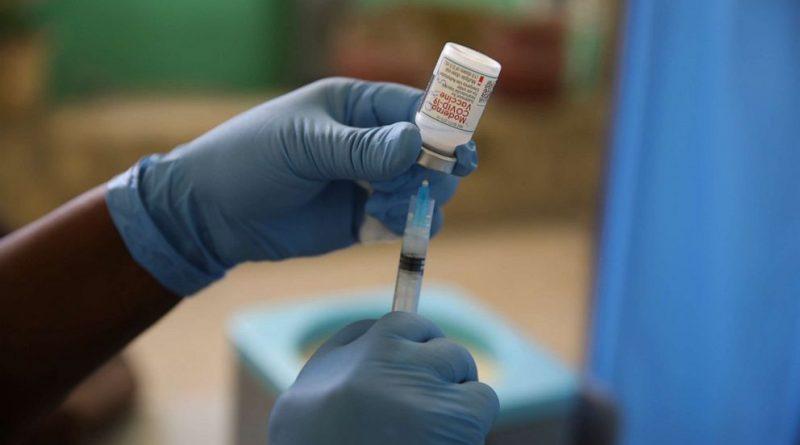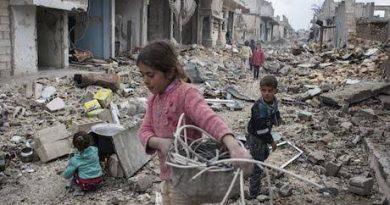Nigeria steps up efforts to reach more children with vaccines
In Nigeria, at least 64% of children aged 12 to 23 months did not obtain all recommended immunizations in 2021, but some caregivers are stepping up to guarantee their children are protected through vaccination.
Mrs Joy Armstrong is among them, hugging her nine-month-old baby Joel under a pavilion at the Kuje General Hospital, Kuje Area Council, in Abuja, Nigeria, while waiting for Routine Immunization (RI) service.
Joel was supposed to have meningitis, yellow fever, and his first dose of measles vaccine. Vaccines help keep our children healthy,” says Mrs Armstrong, a mother of three. “That is why I don’t miss any of my children’s immunization schedules. We parents will face less financial consequences as a result of the free immunizations. We spend less money on health-care issues since vaccines prevent numerous diseases.
We thank the government, the World Health Organization (WHO), and other partners for caring for the well-being of our children. “Mothers should take advantage of the free vaccines by ensuring that their children do not miss any vaccines,” she advises.
A long-awaited advancement
The Government of Nigeria, through the National Primary Health Care Development Agency (NPHCDA), administers 13 vaccinations on its Expanded Programme on Immunization (EPI) schedule in collaboration with WHO, Gavi, the Vaccine Alliance, UNICEF, and other partners.
The rotavirus vaccine is the most recent. The free Rotavirus vaccination is provided orally and concurrently with the existing RI vaccines at six, ten, and fourteen weeks.
Danjuma Laraba Alanyiwunya, a nurse at Kuje General Hospital in Abuja, emphasizes the importance of immunizations in preventing infant deadly diseases.According to Nurse Alanyiwunya, the center vaccinates roughly 150 children weekly with 13 different types of pediatric antigens (vaccines).
“We usually have a good turnout every week.” The immunization protects the children’s health. We provide free daily RI services for children with the help of the government, WHO, and other partners to protect them from several terrible diseases such as Hepatitis B, measles, yellow fever, polio, and rotavirus, among others, she says.
Getting to every youngster
The RI Program in Nigeria continues to play a vital role in preventing babies and children from potentially fatal infections. Dr. Walter Kazadi Mulombo, WHO Country Representative, says, “Investment in immunization remains a top priority to ensure life-saving vaccines are delivered to children, women, adolescents, and vulnerable populations to protect them from vaccine-preventable diseases.
Dr. Mulombo explains that over the last 75 years, WHO, in collaboration with countries and partners, has made significant progress in disease prevention, with major achievements including the eradication of smallpox, a 99% reduction in the incidence of polio, the saving of millions of lives through childhood immunization, a decrease in maternal mortality, and the improvement of health and well-being for millions more.
He reaffirms WHO’s ongoing commitment to providing technical assistance for the introduction of new vaccines into Nigeria’s Routine Immunization Schedule, as well as other health programs.
Furthermore, using GAVI financing, WHO is assisting the Nigerian government in immunization and PHC system strengthening. The organization continues to provide guidelines to ensure quality services, strengthen coordination, and assist the government in building the capacity of health workers; improve data quality and monitoring systems; and improve overall management capacity for routine immunization service delivery in order to address equity gaps in immunization, improve coverage, reduce the current zero dose burden, and strengthen primary health care.




